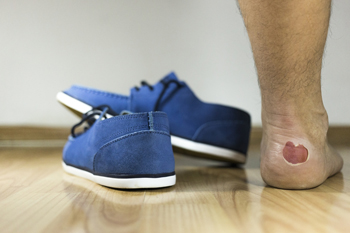
If you have persistent foot blisters that do not heal within two weeks or show signs of infection such as foul odor, pus, or red streaking, please consult a chiropodist. Seek their help if you also experience whole-body symptoms including fever, leg swelling, or blisters in other parts of your body. Recurring foot blisters may indicate structural foot issues such as bunions or hammertoes and should be evaluated. People with diabetes or circulatory issues need to be extra vigilant in checking for and treating foot issues to prevent infections. While various conditions can cause foot blisters, including athlete's foot, eczema, and insect bites, good foot hygiene is important for prevention and treatment, regardless of the underlying cause. If you have persistent foot blisters, it is suggested that you make an appointment with a chiropodist for evaluation, treatment, and prevention tips.
Blisters can usually be treated at home, however, if you have recurring blisters or experience significant discomfort or pain, please consult with one of the chiropodists from Complete Family Footcare & Therapy. Our clinicians will assess your condition and provide you with quality foot and ankle treatment.
What Is a Blister?
A blister is a small pocket of fluid in the upper skin layers and is one of the body’s natural responses to injury or pressure. Blisters can also result from burns, fungal or viral skin infections, and the feet are particularly prone due to ill-fitting footwear and friction. Friction on the skin causes the upper layer of skin to separate from the lower layers. The space that this separation creates then becomes filled with a liquid called serum, which protects the lower layers of skin.
Treatment
If you notice a blister on your foot, you can cover it with a soft bandage or dressing to protect it. Popping the blister is discouraged. Doing so exposes the raw skin underneath it to bacteria and also raises the risk of infection. If a blister pops naturally, let it drain before covering it with a bandage. Blisters usually heal on their own or with home treatment, however, if your blister is recurring, very painful, or appears infected, it is recommended that you see a chiropodist for treatment.
Prevention
You can help to prevent blisters by wearing comfortable, well-fitted shoes. Keep your feet dry by wearing moisture-wicking socks and dust your feet with talcum powder if they tend to get sweaty. If you have areas on your feet that are more susceptible to blisters, you might be able to prevent the blister from forming by covering it with a pad.
If you have any questions, please feel free to contact our offices located in . We offer the newest diagnostic and treatment technologies for all your foot care needs.
